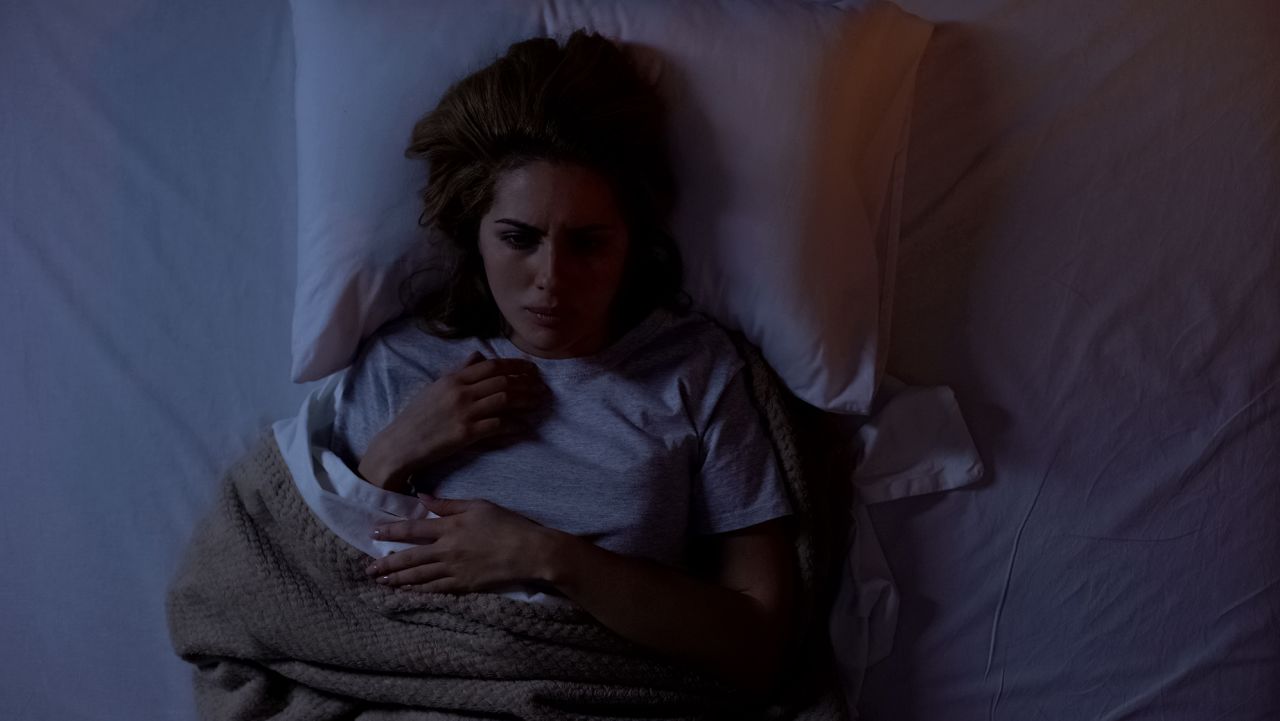If you suffer from insomnia, these tips could help you a lot 2:46
(CNN) --
Has it happened to you that you're falling asleep and suddenly feel like you fall and wake up with a start?
Some people say they are startled awake by a loud pop or blinding light coming from their mind, while others describe how their muscles jerk involuntarily from a sudden electric shock.
"Hypnic jerks or myoclonic jerks usually consist of a strong jerk that moves most of the body, with the arms and legs more likely to be affected. This can wake you up before you have a chance to fall asleep," says Dr. Dr. Raj Dasgupta, a sleep specialist and associate professor of clinical medicine at the University of Southern California Keck School of Medicine.
Chris Breitigan, a 29-year-old podcaster from Huron, Ohio, says that sometimes he wakes up with a rather ghostly experience.
"I'm about to fall asleep and I feel like someone is tickling me," she explains.
"It starts at my back and goes down my legs. I startle and feel a kind of jolt in my body."
According to scientists, the experience may be accompanied by rapid heartbeat, rapid breathing, sweating, or a vivid dream or hallucination.
Try This 5-Minute Yoga Routine Before You Go To Bed
Sleep startles, officially called "sleep jerks," are normal occurrences that can occur in men and women of any age and are usually not a cause for concern, Dasgupta says.
advertising
"It is estimated that almost 70% of the population experiences hypnic jerks at some point," he says.
"Medically, hypnic jerks are classified as a type of myoclonus, which is a category of rapid, involuntary muscle movements. A classic example of myoclonus is hiccups."
No one knows exactly why the body jerks when falling asleep, but experts believe that excessive caffeine consumption and physical or emotional stress can increase their frequency.
"They can also be facilitated by fatigue or sleep deprivation," says Dasgupta.
"However, most hypnic jerks occur essentially randomly in healthy people."
Breitigan's sleep is often disturbed after hanging out with friends on Taco Tuesday nights.
"I don't really drink much," he said.
"But on Tuesdays I go out with friends and have drinks with tacos. So to me it seems like it's triggered by alcohol because I don't drink regularly."
when to worry
There is no treatment for hypnic jerks, says Dasguta, and they are usually harmless.
However, it is time to visit the doctor if you experience any of the following symptoms: multiple muscle jerks throughout the day, an injury caused by sleep jerks, biting your tongue or mouth while sleeping, or bedwetting.
"Sometimes, hypnic jerks can be mistaken for seizures," explains Dasgupta.
"While they may appear similar, they have some fundamental differences: Seizures are a serious event that may result from underlying disease."
"On the other hand, the hypnic jerks are benign phenomena that are not related to any health problem," he adds.
"Mainly they are annoying, especially if they prevent sleep."
However, some people develop a fixation on these sleep jolts, causing increased anxiety about the disturbing experience, he added.
"This increased anxiety and fatigue increases the likelihood of experiencing these twitches, resulting in a vicious cycle of insomnia and sleep deprivation," Dasgupta said.
Sleep hygiene: 8 ways to train your brain to sleep better
Try these solutions
Dasgupta offers the following suggestions to those who are bothered by these episodes:
Reduce caffeine intake: Drinking
less caffeine throughout the day can help improve overall sleep quality, says Dasgupta, especially if caffeine is avoided in the late afternoon and evening.
Avoid or reduce alcohol consumption close to bedtime:
the same can be said for alcohol, which can cause drowsiness, but when the body finishes metabolizing it, the person wakes up, usually in the middle of the night.
This will increase your fatigue, making you more vulnerable to hypnic jerks.
Try meditation and mindfulness before bed:
According to Dasgupta, relaxing the body can ease the transition to sleep and make muscles less prone to twitching.
"Also, one of the best ways to fall asleep is to focus on your breathing. Most breathing exercises for sleep usually involve slow, deep breaths," she explains.
Keep a sleep routine:
Dasgupta says that to sleep better it is necessary to set a time to go to bed, even on weekends and during vacations.
It also helps to avoid bright screens at bedtime.
"Bright light from the TV, computer or smartphone can affect sleep patterns and keep us alert when we should be sleepy," he explains.
"Sleep is something you've done your whole life, but the older you get, the harder it can be to fall asleep, so practice good sleep hygiene."
Sleep quality

